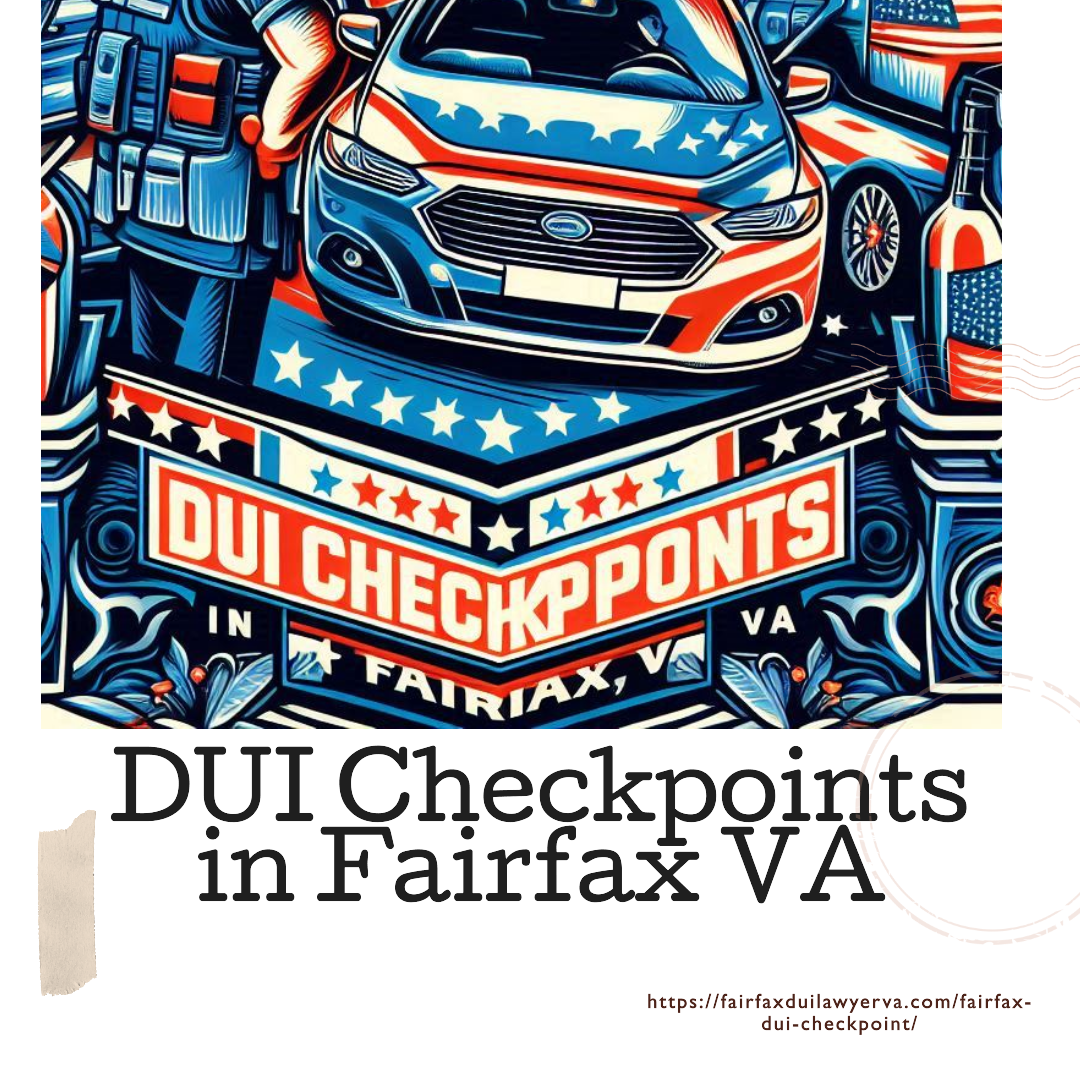Introduction
DUI (Driving Under the Influence) checkpoints are a common tool used by law enforcement in Fairfax, VA, to deter drunk driving and ensure road safety. While their primary goal is to catch impaired drivers, these checkpoints also raise important questions about citizens’ rights. Knowing your rights and how to handle a DUI checkpoint can have a big impact on how a run-in with the law goes. This guide provides a comprehensive overview of your rights at DUI checkpoints in Fairfax VA, what to expect, and how to protect yourself during these stops.
What Are DUI Checkpoints?
DUI checkpoints, also known as sobriety checkpoints, are predetermined locations where police officers stop vehicles to check for signs of impaired driving. Unlike standard traffic stops, these checkpoints do not require probable cause to stop each vehicle. Instead, officers use a systematic pattern, such as stopping every third or fifth car. This practice is legally permitted under both Virginia state law and U.S. Supreme Court rulings, as long as certain guidelines are followed to protect drivers' constitutional rights.
Your Rights at a DUI Checkpoint in Fairfax, VA
The Right to Avoid the Checkpoint (If Done Legally)You have the legal right to avoid a DUI checkpoint if you can do so safely and without violating traffic laws. For instance, if you see a checkpoint ahead and can make a legal U-turn or turn onto a side street without breaking any laws, you are within your rights to do so. However, erratic driving or illegal maneuvers to avoid a checkpoint could give police reasonable suspicion to stop you.
The Right to Quietness You have the right to silence under the Fifth Amendment. You are not asked where you are going, where you have been, or whether you have consumed alcohol, but you must identify yourself by presenting your driver's license, vehicle registration, and proof of insurance. It is sufficient to assert this privilege by politely but firmly saying, "I choose to remain silent."
The Right Against Unreasonable Searches Police officers cannot search your vehicle without probable cause, your consent, or a warrant. If an officer asks to search your vehicle, you have the right to say, “I do not consent to a search.” Be aware that if the officer sees something in plain view, such as an open alcohol container, they may have probable cause to search your car.
The Right to Refuse Field Sobriety Tests In Virginia, you are not legally required to perform field sobriety tests (like walking a straight line or following an object with your eyes). These tests are subjective, and many sober people can "fail" them due to anxiety, medical conditions, or other factors. Politely declining to perform these tests is within your legal rights.
The Right to Refuse a Preliminary Breath Test (PBT) Before Arrest If you’re under 21, the "zero-tolerance" law in Virginia prohibits you from refusing a preliminary breath test (PBT). However, for drivers 21 and older, you have the right to decline a PBT conducted before an arrest. This handheld device's results are often less reliable than official breathalyzer devices and are used primarily to establish probable cause for an arrest.
Implied Consent After Arrest If you are arrested for DUI, Virginia’s implied consent law requires you to submit to a chemical test, such as a breathalyzer or blood test. Refusing this test after an arrest can result in an automatic license suspension and may be used against you in court. It’s important to understand that the rules are different pre- and post-arrest.
What to Do During a DUI Checkpoint Stop
Stay Calm and Compliant When you see a DUI checkpoint ahead, remain calm and follow the officer’s instructions. Roll down your window enough to communicate, but you do not have to roll it down all the way. Have your driver’s license, registration, and insurance ready to avoid delays.
Invoke Your Rights Respect fully If you choose to remain silent, decline field sobriety tests, or refuse a search, do so respectfully. The situation may worsen if you argue or get combative. Use straightforward statements such as "I do not consent to a search" or "I choose to remain silent."
Document the Encounter If possible, record the interaction on your phone. Many people use dashcams to document police stops, and this evidence can be useful if your rights are violated. Be sure to inform the officer that you are recording if it is not already obvious.
Request Legal Assistance If you are detained or arrested, do not make any statements beyond asking for an attorney. You have the right to legal counsel, and anything you say can be used against you in court.
Common Mistakes to Avoid
Panicking and Making Illegal Maneuvers: Avoid erratic driving to escape a checkpoint, as this can give officers probable cause to stop you.
Giving Away Too Much Information: Answer questions succinctly and precisely. It is not necessary for you to respond to inquiries such as "Have you been drinking tonight?"
Consenting to a Vehicle Search: Do not give permission for a vehicle search unless an officer has a warrant or probable cause.
Refusing the Post-Arrest Chemical Test: Once arrested, refusal to submit to a chemical test can lead to a suspended license and other legal consequences.
Conclusion
Knowing your rights at DUI checkpoints in Fairfax VA, can help you navigate these stops with confidence and avoid unnecessary legal trouble. While police officers are permitted to set up sobriety checkpoints, your constitutional rights still apply. By staying calm, understanding your rights, and invoking them respectfully, you can protect yourself during a checkpoint encounter. If you believe your rights were violated at a DUI checkpoint, consider consulting an experienced DUI attorney to evaluate your case and protect your legal interests.





Comments